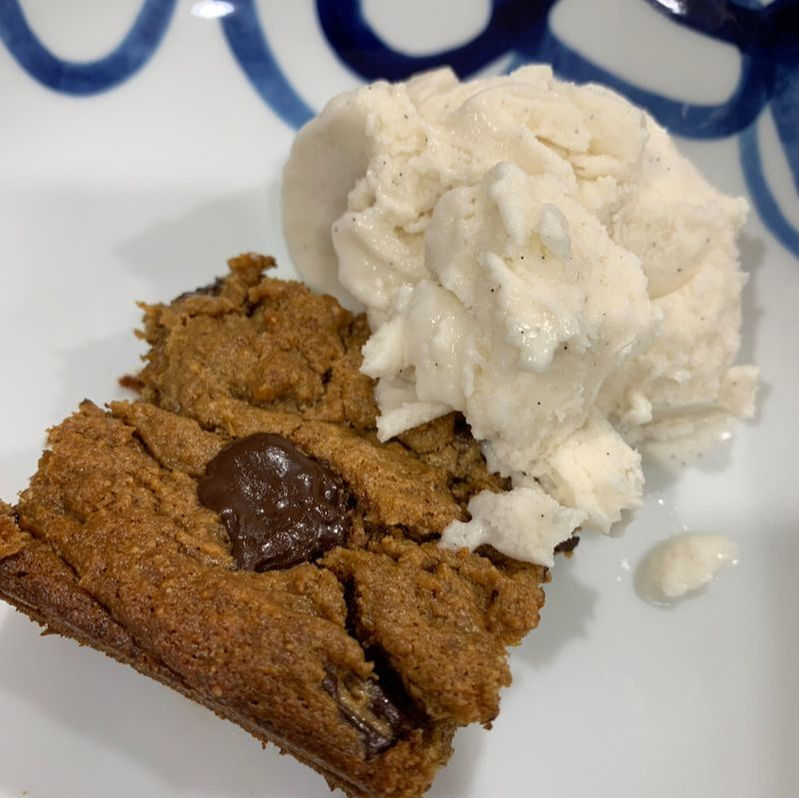Building a foundation with the Whole 30
- Radhika Brinkopf

- Jun 14, 2018
- 3 min read
Updated: Feb 18, 2019

I started my journey towards a healthier and more balanced lifestyle with the Whole 30. I had heard about the Whole 30 from family and friends and had seen the mouthwatering posts on Instagram but I didn't really believe that I could give up bread, cheese, or red wine. Thirty days seemed like a lifetime and I didn't actually know how I was going to keep true to the Whole 30.
What eventually helped me decide to commit to the Whole 30 was a desire to understand my sister's life a little bit better. They say true empathy is looking at the world through another's eyes or walking a mile in their shoes. The Whole 30 was my way of truly experiencing and understanding my sister's reality.
When my sister was about 20 years old, she was diagnosed with dairy, gluten, and soy allergies after having a severe allergic reaction to soy. She had always had digestive issues but after she moved abroad for a few years, the discomfort she often felt after meals transitioned to severe physical reactions that she could no longer ignore. Once diagnosed with her allergies, my sister was forced to give up foods made with dairy, gluten, and soy (similar to the Whole 30).
It's been about five years since my sister has had to adjust her lifestyle to accommodate her dietary restrictions. Over the course of the past five years I have watched her become a stronger, more disciplined individual as she has learned how to navigate her life with these new restrictions. Experiencing food through her eyes has helped me truly understand the role that food plays in our lives and was my inspiration for finally committing to the seemingly impossible Whole 30.
In my life, I have experienced food as an integral part of my culture and of other cultures. I have explored Thailand, Mexico, China, Vietnam, Ethiopia, Italy, Peru, India, and many more countries through their cuisine. Not only does food allow us to explore the world and understand other cultures, food is often at the center of social gatherings and important family memories.
However, while food can be a part of so many wonderful memories, it also exerts this sense of control over us. I used to be caught between two cycles: (1) obsessively counting calories, trying to be healthy, but actually just feeling tired, frustrated and trapped or (2) feeling powerless as I overindulgence in a meal, snack, or dessert and then feeling like a failure for not being able to control myself.
Now that I have completed my Whole 30 journey I finally feel a sense of control over my food habits. By removing certain food groups (dairy, grains, soy, added sugars, legumes, etc.) from my diet and committing to doing so for 30 days I was able to reset my body. I was able to overcome cravings and change how I approach food. I am able to make choices to indulge when I want to, because I know that I have the ability and control to eat healthy the rest of the time. The Whole 30 allowed me to gain a stronger understanding of my sister's experience with food and it has allowed me to truly understand the importance of balance in how I choose to interact with food. I no longer count calories because I don't need to. I trust my ability to make conscious decisions about the food that I eat. I can make the choice to indulge when I'm traveling to another country and want to experience their culinary culture and I can make the choice to indulge in a special meal or dessert. Neither of these are bad choices. Both are conscious choices and making conscious choices do not mean that I have failed. I know I can indulge when I do make that choice, because I have built a strong foundation and can always find my way back to the eating habits I developed during the Whole 30 experience.





Comments